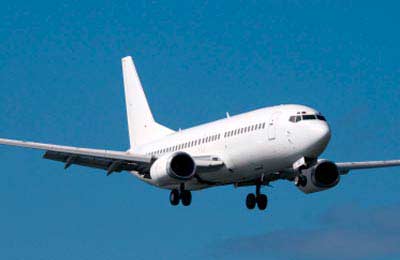Sunday Feb 22, 2026
Sunday Feb 22, 2026
Monday, 25 May 2015 00:00 - - {{hitsCtrl.values.hits}}

Despite claims by the Big Three US airlines, the market for air travel from the US to the Indian sub-continent has expanded significantly from 2009 to 2014 with US airlines and their European partners actually flying 223,000 more passengers during that period.
This is only one of a series of US airline claims challenged and debunked in a new report released today by Etihad Airways.
The research, undertaken by the leading US-based consultancy Edgeworth Economics, found that on routes where Etihad competes with the three largest US carriers and their global alliance partners, these airlines actually carried more passengers, despite having lost market share on certain routes.
It found that passenger numbers for the Big Three and their global alliances actually increased by 18%, or an additional 223,000 passengers, despite losing 4.4 percentage points in market share for economy passengers between the US and the India between 2009 and 2014.
Similarly, for premium passengers between the US and India for the same period, the actual passengers carried by the carriers and their alliance partners increased by 27%, or over 33,000 although their market share decreased by 12.5 percentage points.
The report also analysed Etihad’s pricing on the routes on which the airline competes with the three US carriers and their global alliance partners.
It found that Etihad’s prices are competitive, therefore contradicting their claims that it was anti-competitive.
The Edgeworth Report, commissioned by Etihad, also disproved their claims that Gulf carriers have put ‘excessive capacity’ into the market.
It found that these simplistic claims do not stand up to economic scrutiny, as the markets in which Etihad operates have much higher average rates of economic growth than the global average, which in turn, drove a higher demand for air services.
The report also identified other considerations such as pent-up demand due to under-servicing by US carriers.
Finally, in addition to assessing the claims in the Open Skies Report, Edgeworth also analysed claims made in a recent economic report published by Compass Lexecon on behalf of these carriers.
Edgeworth found that the Compass Lexecon Report is ‘fundamentally flawed’ and ‘ignores key evidence’ as it contains two unsupported assumptions - the report treats as an accepted fact that Etihad and other Gulf carriers have received subsidies, a point which has merely been asserted by the US. carriers but is the subject of the ongoing government docket process; and the Big Three essentially ‘own’ traffic on existing routes and Gulf carriers are only entitled to compete for traffic if they can prove they have ‘stimulated’ this traffic.
Certain statements in the Compass Lexecon report were also directly contradictory to previous statements and testimony that Compass Lexecon has presented on behalf of these same three US carriers, said the Edgeworth report.
It failed to establish any actual harm caused by the Gulf carriers to US carriers, whereas the Edgeworth Report demonstrated that competition has led to overall market growth and increased consumer choice.
Kevin Knight, chief strategy and planning officer, Etihad, said: “The claims made by the three US carriers that Etihad and other Gulf carriers are damaging their business and taking ‘their’ passengers, are not only false, but also arrogant.
“They do not ‘own’ these passengers, nor do they do have a right to them. At Etihad Airways, we believe we must earn the business of our guests by offering the best value and product for their money, along with the most convenient service.”
Knight also noted that in 2014, Etihad fed 182,000 passengers onto US carriers, including American Airlines.
Delta Air Lines and United Airlines, with the number forecast to grow by 65% to approximately 300,000 passengers this year.
“We work with 48 airlines around the globe who take advantage of our strategic position in the Gulf to connect their passengers to the emerging markets of the Middle East, India, and Asia. We also feed our passengers onto the networks of our partner airlines, including the US carriers, thus increasing the reach of our respective networks and increasing choice to consumers,” said Knight.
“The US Open Skies policy has been hugely successful for American carriers and has also allowed airlines like Etihad Airways to connect passengers to the US who otherwise would not be able to travel,” he said.
“It has forced the Big Three carriers and their global alliance partners, which between them control over 50% of global passenger traffic, to be more competitive. It is therefore disturbing that these same carriers are now seeking to roll back Open Skies and the huge benefits it brings for competition and consumers,” he added.
Etihad also confirmed that it will file its full response with the US Government by the end of May.